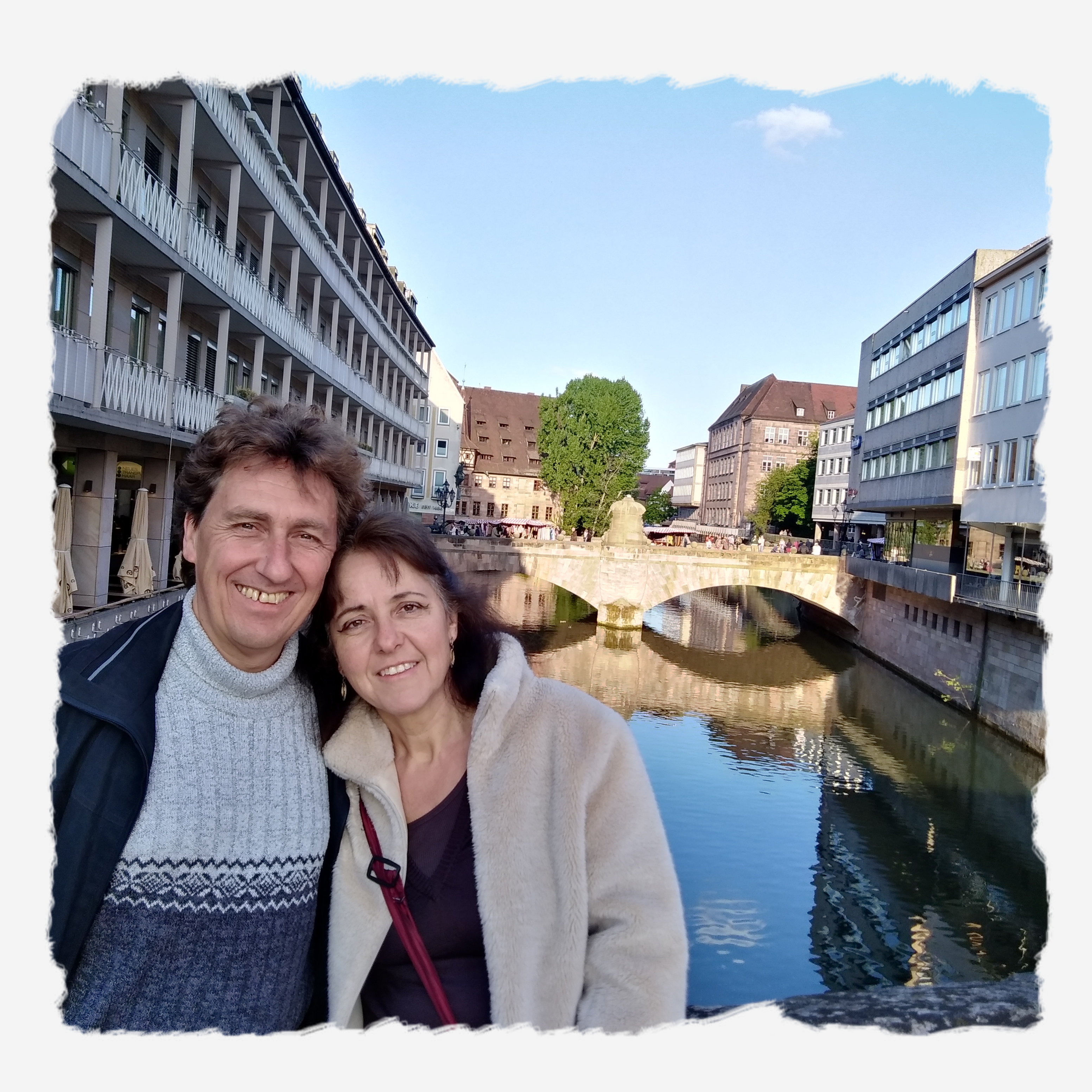Regaining trust after cheating is the glue that binds people together, fostering a sense of safety and security.
Trust is the bedrock of any meaningful relationship. It's the glue that binds people together, fostering a sense of safety and security.
Regaining trust after cheating is not an overnight process. It requires time, effort, and a deep understanding of the dynamics involved.
In this article, we delve into the essential steps to build lasting trust. We explore the fundamentals, the challenges, and the strategies to nurture trust in various types of relationships.
Whether it's a personal, professional, or romantic relationship, the principles of trust remain the same. Honesty, consistency, and reliability are just a few of the key elements.
However, each relationship type has its unique nuances. We'll guide you through these subtleties, providing actionable advice tailored to your specific needs.
We also tackle the tough topic of broken trust. How do you rebuild when trust has been shattered? We provide insights and practical steps to navigate this difficult terrain.
Finally, we offer trust-building activities and exercises. These tools can help reinforce the principles discussed and provide a fun, engaging way to strengthen your relationships.
Join us on this journey to understand how to build trust, improve your relationships, and foster deeper connections.
Trust forms the cornerstone of any relationship. It creates a safe space where vulnerability is welcome, and risks can be taken without fear.
Every healthy relationship thrives on trust. Without it, misunderstandings and conflicts can quickly arise, eroding the very foundation of your connection.
Building trust is a continuous process. It's woven into every interaction, from the words you choose to the actions you take.
Communication plays a pivotal role in building trust. Being open and honest paves the way for mutual understanding.
However, trust isn't just about words. It's also about actions. Consistent, dependable actions underpin trust in any relationship.
Finally, trust requires a willingness to give others the benefit of the doubt. It's about believing in their intentions, even when things seem uncertain.
Trust is an essential ingredient in any successful relationship. It enables open communication and fosters a sense of belonging.
When trust exists, people feel valued and respected. They can express their true selves without fear of judgement or rejection.
Without trust, relationships struggle. Doubts and insecurities take root, breeding suspicion and conflict. This negative environment undermines any sense of security.
Trust acts as a stabilizing force, providing the confidence needed to navigate conflicts and challenges. It is the foundation upon which enduring relationships are built.
From a psychological perspective, trust is a complex concept. It involves cognitive processes, emotions, and perceptions.
Trust begins with predictability. When we experience consistent and positive interactions, our trust in others grows.
The brain perceives trust as a reward. When trust is reciprocated, it releases chemicals like oxytocin, enhancing our emotional bond.
Conversely, breaches of trust trigger negative responses. The brain's defense mechanisms activate, creating mistrust and distance.
Understanding these dynamics can help us foster and maintain trust. By recognizing the psychological factors at play, we can nurture deeper, more fulfilling relationships.
Building trust requires attention to several core principles. Each of these principles lays the groundwork for a strong, trusting relationship.
One of the primary principles is openness. When you communicate openly, you show transparency, which helps foster trust.
Another crucial factor is consistency. Trust grows when your actions match your words over time.
Reliability is also a key element. By reliably fulfilling your promises, you demonstrate trustworthiness.
Active listening further enhances trust-building efforts. When you listen intently, you validate the other person’s feelings and perspectives.
Empathy allows you to connect deeply with others. It requires understanding and sharing the feelings of others, which builds mutual trust.
Here is a list of some fundamental actions to build trust:
Communicate openly and honestly
Show consistency in your actions
Be reliable and follow through on commitments
Practice active listening
Demonstrate empathy and understanding
Each of these actions contributes to trust in its own way. Together, they create a powerful bond that strengthens relationships.
Trust-building is not a one-time effort but a continuous journey. By embracing these principles, you lay a solid foundation for lasting relationships.
Open and honest communication is vital for trust. It means expressing thoughts and feelings without deceit or ambiguity.
When you are open, you invite openness in return. This transparency helps foster a safe, trusting environment.
Honesty should be upheld even when it is challenging. Small lies can sow seeds of doubt and erode trust quickly.
Building a culture of honesty in any relationship improves its overall quality. Trust flourishes when both parties feel valued and understood.
Consistency breeds trust. When your actions align with your words, trust becomes stronger.
People rely on consistency to gauge predictability. Erratic behavior, on the other hand, breeds uncertainty and mistrust.
Consistency indicates reliability and integrity. Knowing what to expect fosters comfort and security in any relationship.
It's essential to regularly reflect on your actions. Ensure they align with your values and commitments to others.
Reliability is the cornerstone of trustworthy relationships. Delivering on promises shows others they can count on you.
When you follow through, you show commitment. This dedication strengthens the trust others place in you.
Reliability demands attention to detail. It ensures you don't overlook important promises, no matter how small.
Consistently following through on commitments engenders a reputation of trustworthiness. It reassures others of your dependability.
Active listening is more than just hearing words. It involves understanding and validating the speaker's point of view.
Engaging with empathy makes the other person feel heard. It builds a deeper connection and fosters trust.
Active listening requires focus. It's about being present, reflecting back thoughts, and asking clarifying questions.
This engagement reduces misunderstandings and conflict. It builds a shared understanding and reinforces mutual trust.
Building trust is a fundamental aspect of any relationship. However, the approach to nurturing trust might vary depending on the type of relationship involved. Understanding these nuances can help in fostering a trusting environment in all spheres of life.
In personal relationships, trust grows through empathy and meaningful interactions. Being emotionally available and listening actively can create strong bonds. It's also important to maintain consistency and honesty in daily interactions. Over time, these consistent behaviors build a reservoir of goodwill and trust. Personal relationships thrive on a foundation of open communication and shared experiences, allowing for mutual growth and understanding.
Professional relationships require a different balance of trust. Here, trust is often built on competence and reliability. Delivering quality work consistently and meeting deadlines can reinforce trust among colleagues. Transparency in communication is key to avoiding misunderstandings. A willingness to collaborate and take responsibility for one's role within a team can strengthen professional bonds. In workplace dynamics, trust facilitates smoother workflows and enhances team cohesion.
Trust in romantic relationships is deep-rooted and complex. It thrives on emotional intimacy and vulnerability. Sharing feelings and being open about one’s needs is crucial. Missteps may happen, but the ability to forgive and rebuild trust is vital. Romantic partners should practice patience and avoid jumping to conclusions. Building trust involves being supportive and available during challenging times. Celebrating achievements and facing adversities together helps strengthen the romantic bond.
Trust, once built, does not stay impervious to challenges. Various factors can strain trust in any relationship. Understanding these challenges and addressing them head-on is crucial. The ability to recognize and overcome these obstacles can save a relationship from deterioration. Even the strongest bonds may face trials, but resilience lies in confronting issues early.
Fear of vulnerability can be a major challenge. Some people fear being hurt, which prevents them from fully trusting others. Addressing this fear often involves open communication and reassurance. Another common challenge is miscommunication, which can lead to misunderstandings. Clarity in conveying thoughts and feelings is essential to preventing misinformation.
A lack of accountability is also a prevalent issue. When people fail to own their actions, it can erode trust. The key is to accept responsibility and strive for improvement. Moreover, past experiences and baggage can interfere with current trust-building efforts. Unresolved issues may manifest in distrust.
Finally, external influences such as gossip or external pressure can threaten the trust foundation. It's important to insulate relationships from such negative forces by reinforcing inner values. Remember, challenges are opportunities for growth, making each relationship stronger.
Betrayal can significantly damage the foundation of a relationship. It encompasses acts that breach the core expectations of trust. The first step in dealing with betrayal is acknowledging the hurt it caused. Suppressing emotions can lead to prolonged pain. Emotional expression is necessary for healing.
Next, it’s crucial to seek understanding of the situation. What led to the betrayal? This involves candid conversations between both parties involved. Exploring the motivations behind actions provides clarity and, possibly, closure. It's essential to foster a non-judgmental environment for such discussions.
Lastly, it's important to decide the future course of action. Sometimes, despite the hurt, relationships can be rebuilt. Forgiveness is a personal choice, requiring time and reflection. This critical decision impacts how the relationship evolves post-betrayal. Whether to mend the bond or part ways, the path taken should prioritize personal well-being.
Rebuilding trust after it’s been broken requires intentional effort. The process begins with sincere apologies. An apology isn't just words; it signals accountability and a desire to change. Acknowledging the breach and expressing genuine remorse is essential. This creates a foundation for the rebuilding process.
Additionally, transparency is crucial. Open communication about feelings and expectations is vital. Consistently sharing information can help rebuild confidence. Demonstrating reliability over time is key to regaining trust. Actions must align with promises to show commitment to change.
Furthermore, both parties need patience. Rebuilding trust is not instantaneous; it unfolds gradually. It's important to set realistic expectations. Each small step towards improvement should be celebrated. Building trust anew can strengthen the relationship even more than before.
Trust, like any aspect of a relationship, requires ongoing care. It's not something to be taken for granted. Continuous improvement and maintenance are crucial for a robust relationship. Being aware of shifts in trust and addressing them is vital. Ignoring small signs of distrust can lead to bigger issues over time. Ongoing attention helps catch these signs early and address them promptly.
Clear communication channels should be maintained. Open dialogue prevents assumptions and misunderstandings. Regularly checking in with each other can strengthen the trust bonds. Moreover, trust evolves with experiences. Embracing change while sticking to core values keeps trust robust. Adaptation can prevent stagnation and foster a dynamic and trusting relationship.
Engaging in shared activities can further trust. Experiences together help fortify trust by fostering collaboration and understanding. Be it professional or personal settings, joint endeavors build connections. Supporting each other in times of need enhances trust. It reassures partners of their importance in each other's lives.
The following actions are helpful in maintaining and improving trust:
Practice active listening to understand others’ perspectives.
Be reliable; follow through on promises.
Show gratitude for the other's trust and support.
Engage in open and honest communication.
Respect and honor established boundaries.
Prioritize quality time together to strengthen bonds.
Address conflicts constructively and avoid blame.
Trust flourishes in a supportive environment. Encouragement and appreciation go a long way. Acknowledging each other’s efforts fosters a nurturing atmosphere. Lastly, recognize that trust is a lifelong journey. It's a shared commitment to mutual growth and understanding.
Empathy serves as the backbone of trust. Understanding someone else's feelings and perspectives builds a deeper bond. It involves putting yourself in another's shoes and seeing the world through their eyes. Acknowledging emotions validates them, creating a safe space for expression. Empathy helps mitigate conflicts by fostering compassion over judgment.
In any relationship, understanding reduces assumptions. Assumptions often lead to misunderstandings. By actively seeking to understand, you show care and respect. It’s important to be open-minded and patient. This approach lays the groundwork for genuine trust. By exercising empathy consistently, you nurture a connection that withstands challenges.
Boundaries are crucial for healthy relationships. They define the limits within which trust can safely operate. Setting boundaries involves clear communication of needs and preferences. It’s a way to express what is acceptable and what isn’t. Respecting boundaries shows acknowledgment and respect for the other person.
Mutual respect is vital when setting boundaries. Recognizing and honoring a partner’s limits strengthens trust. It demonstrates that you value their autonomy and space. Moreover, boundaries help prevent resentment. They provide clarity and reduce misunderstandings. Open conversations about boundaries ensure that both parties are comfortable. This proactive approach supports trust in the long run.
Recognizing achievements together is essential. Celebrating successes reinforces positive behaviors and strengthens bonds. It reflects joy and support for each other's triumphs. These shared moments build a sense of unity and accomplishment. They remind you of the collective strength in the relationship.
Similarly, facing challenges together is equally important. Challenges test the foundations of trust. By facing them together, you demonstrate resilience and commitment. Sharing burdens shows that you trust each other’s capabilities. It’s an opportunity to provide support and encouragement. These experiences forge a stronger connection, built on trust and mutual reliance.
Engaging in trust-building activities can deepen your relationships. These exercises are designed to enhance communication, empathy, and reliability. They help reinforce the foundation of trust in both personal and professional settings. Regular practice of these activities leads to improved understanding and connection.
Trust-building doesn't have to be complex. It can be as simple as a regular check-in meeting with colleagues. For couples, dedicated time for sharing thoughts can be beneficial. These routines create predictability and structure, reinforcing trust over time. Incorporating these into your life can yield fruitful results.
Here's a quick list of trust-building activities:
Trust Falls: This physical exercise requires participants to trust their partner to catch them.
Sharing Circles: Open dialogues in a safe setting encourage vulnerability and understanding.
Collaborative Projects: Working on shared goals fosters teamwork and reliance on each other.
Active Listening Exercises: Practicing to listen without interrupting builds patience and understanding.
Problem-Solving Sessions: Tackle challenges together to enhance problem-solving skills and trust.
These activities help break down barriers in communication. They enable participants to view each other in a new light. Both exercises and activities are excellent opportunities for reflection and feedback. Being intentional about nurturing trust paves the way for healthier and more meaningful relationships.
Personal growth is integral to building trust with others. Self-awareness is the first step. It helps identify personal biases and limitations. Journaling can be effective for self-reflection. It allows you to explore thoughts and emotions privately. A journal becomes a space for understanding your actions better.
Meditation is another powerful tool. It enhances mindfulness and emotional regulation. Practicing meditation regularly can reduce stress and improve focus. This internal balance makes it easier to be present and understanding with others. It creates a ripple effect, positively impacting your external relationships.
Seeking feedback from peers fosters growth. Constructive criticism can highlight areas for improvement. It requires an open heart and mind to receive feedback gracefully. This process builds self-trust and shows you take accountability seriously. Personal growth thus aligns well with trust-building.
Collaboration is the essence of couples and teams. For couples, trust exercises can revitalize connections. Try synchronized activities like cooking or dance lessons. These activities require coordination and mutual reliance. It's fun and strengthens your emotional bond simultaneously.
Teams can benefit from problem-solving exercises. Group challenges enhance communication and creativity. Escape rooms or scavenger hunts are great for promoting these skills. They encourage members to rely on each other's strengths to achieve common goals. Such experiences translate into a more cohesive and trusting workplace.
Regular feedback sessions are beneficial for both couples and teams. Honest discussions create transparency and address issues swiftly. They foster an environment where trust can flourish. By tackling problems collaboratively, you reinforce the idea that you’re all working towards a shared future.
Building trust is not a one-time task but a continuous journey. It requires dedication and conscious effort from all parties involved. Consistent actions and honest communication are key elements in maintaining this vital element in any relationship.
By applying the steps and activities discussed, you can strengthen and nurture trust over time. Remember, every small effort counts. Approach each day as an opportunity to reinforce and grow the trust within your relationships, ensuring they remain strong and resilient.
Make your appointment now
Over the years, the infatuation often gives way to living side by side as partners. In everyday life with children, a career and different leisure activities, you lose the connection.


Susana and Markus Kessler have been in a happy relationship for more than 25 years. To ensure that their partnership continues to grow, they have repeatedly attended coaching and training sessions on all aspects of their relationship, including communication, money management and parenting.
They have built up several businesses and have become financially free as a result. They have also attended countless coaching and training sessions for their business on sales, marketing, social media, business development and investing.
They have been trained coaches since 2015 and are passionate about passing on their knowledge. Their coaching approach is practical, solution-oriented and individually tailored to the needs of their clients. They offer comprehensive support in the areas of personal development, relationship building and maintenance, financial education and entrepreneurial growth.
Susana and Markus offer various coaching formats to ensure maximum flexibility for their clients. These include:
With their many years of experience and in-depth knowledge, Susana and Markus Kessler help people to strengthen their relationships and make the most of their lives and opportunities.

Our knowledge comes from 25 years of relationship experience as well as training and further education with the world's best in their field, including the NLP Academy Switzerland, J.T. Foxx, T. Harv Eker, Landmark Wordwide, John Kehoe, Maja Storch and many more.

Every partnership is different. We recognize your individual personalities and work with your own resources to support you perfectly on your path to the perfect partnership.

Anyone who talks about their relationship deserves absolute discretion and an atmosphere of trust. That's why we offer you an empathic environment in which you feel safe and secure and can speak openly with each other.